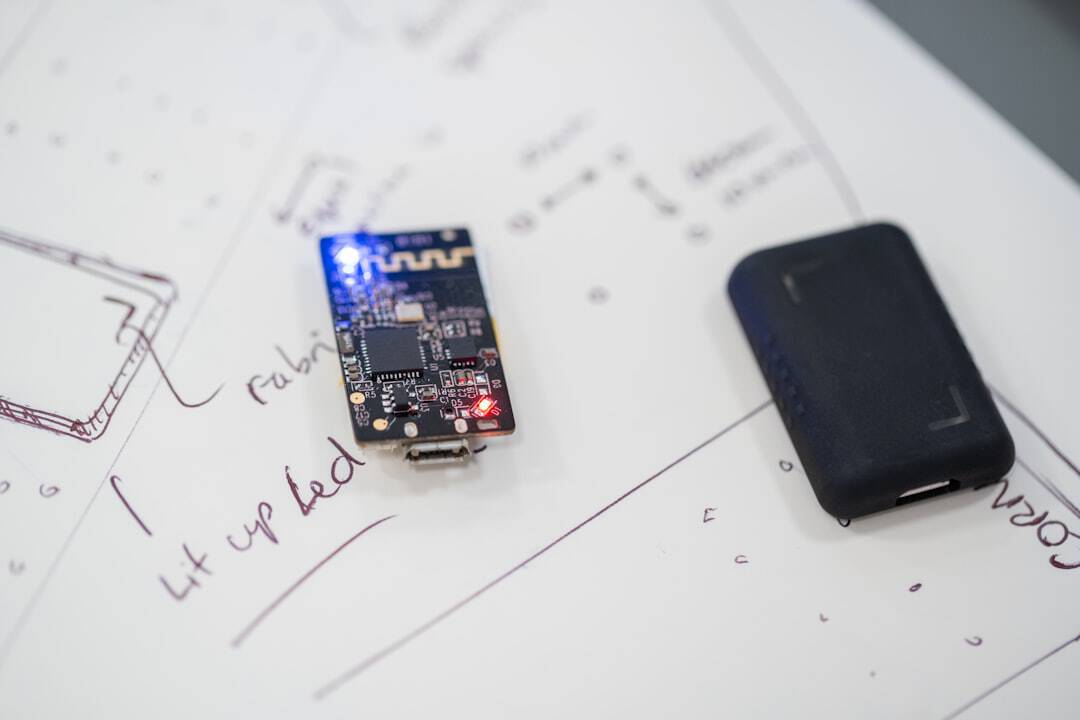The concept of time travel has long captivated the human imagination, inspiring countless stories in literature, film, and art. With the advent of the metaverse—a collective virtual shared space created by the convergence of virtually enhanced physical reality and physically persistent virtual reality—the idea of experiencing historical events firsthand is no longer confined to the realm of fiction. The metaverse offers a unique platform where users can immerse themselves in meticulously crafted digital environments that replicate significant moments from the past.
This innovative approach to time travel allows individuals to engage with history in a way that traditional methods, such as reading textbooks or watching documentaries, cannot replicate. By leveraging advanced technologies like virtual reality (VR), augmented reality (AR), and artificial intelligence (AI), the metaverse transforms our understanding of time and space, enabling us to traverse epochs and witness pivotal events as if we were actually there. As we delve deeper into the possibilities of metaverse time travel, it becomes evident that this phenomenon is not merely about entertainment or escapism.
It represents a profound shift in how we perceive and interact with history. The metaverse serves as a digital canvas where users can explore, learn, and even participate in historical narratives, fostering a deeper connection to our collective past. This immersive experience can enhance empathy and understanding, allowing individuals to grasp the complexities of historical events and the lives of those who lived through them.
As we embark on this journey through the metaverse, we will uncover the various ways it enables us to explore historical events, navigate through time, and ultimately reshape our relationship with history itself.
Key Takeaways
- Metaverse time travel offers a new way to experience and explore historical events in a virtual world.
- Digital history tours in the metaverse allow users to navigate through time and immerse themselves in different historical periods.
- The concept of a virtual time machine in the metaverse has the potential to revolutionize the way we interact with and learn about history.
- Metaverse history presents opportunities to preserve and reimagine the past, creating new ways to engage with and understand historical narratives.
- The impact of metaverse time travel on education and research could be significant, offering immersive and interactive learning experiences.
Virtual Past Experiences: Exploring Historical Events in the Metaverse
Immersive Historical Experiences in the Metaverse
The metaverse offers a unique opportunity for users to travel through time and experience significant historical events firsthand. Imagine witnessing the American Civil War or the signing of the Declaration of Independence from a front-row seat. These virtual past experiences provide an unparalleled chance for individuals to engage with history on a personal level, allowing them to develop a deeper understanding and connection to the past.
Enhancing Learning through Immersive Technology
By utilizing VR headsets and haptic feedback technology, users can feel as though they are truly present in these historical moments, experiencing the sights, sounds, and emotions that defined them. This immersive approach not only enhances learning but also fosters a sense of connection to the past that is often lacking in traditional educational methods. Moreover, these virtual experiences can be tailored to accommodate various learning styles and preferences, making them more accessible and effective.
Interactive Simulations and Collaborative Learning
Educators can design interactive simulations that allow students to take on different roles during historical events, encouraging them to think critically about the motivations and consequences of each action. This active participation can lead to a more profound understanding of history, as students are not merely passive observers but active contributors to the narrative. Additionally, the metaverse can facilitate collaboration among users from diverse backgrounds, enabling them to share their perspectives and insights as they explore historical events together.
The communal aspect of virtual past experiences enriches the learning process and fosters a sense of shared humanity that transcends time. By exploring historical events together, users can develop a deeper understanding of the past and its relevance to the present, ultimately promoting a more empathetic and connected global community.

Digital history tours represent another exciting facet of metaverse time travel, offering users guided explorations of significant historical sites and events. These tours can be designed to mimic real-life excursions, complete with knowledgeable guides who provide context and commentary as participants navigate through meticulously recreated environments. Imagine walking through ancient Rome or exploring the bustling streets of 19th-century London—all from the comfort of your own home.
Such experiences not only make history accessible to a broader audience but also allow individuals who may not have the means or ability to travel physically to engage with their heritage in meaningful ways. In addition to enhancing accessibility, digital history tours can also incorporate interactive elements that encourage user engagement. Participants might be prompted to solve puzzles related to historical events or interact with virtual characters who represent key figures from the past.
This gamified approach can make learning about history more enjoyable and memorable, as users actively participate in shaping their experience rather than passively absorbing information. Furthermore, these tours can be customized to cater to specific interests or educational goals, allowing users to delve deeper into particular themes or periods that resonate with them. As a result, digital history tours in the metaverse not only democratize access to historical knowledge but also empower individuals to take charge of their learning journeys.
The Virtual Time Machine: How the Metaverse Could Change the Way We Experience History
The concept of a virtual time machine encapsulates the transformative potential of the metaverse in reshaping our experience of history. Unlike traditional time travel narratives that often rely on fantastical elements, the metaverse offers a grounded yet imaginative approach to exploring our past. By creating immersive environments that accurately reflect historical contexts, users can step into different eras and witness events as they unfold.
This capability fundamentally alters our relationship with history; rather than viewing it as a static collection of dates and facts, we can engage with it dynamically and interactively. Moreover, this virtual time machine allows for a level of personalization that traditional historical education cannot provide. Users can choose which events they wish to explore, tailoring their experiences based on their interests or academic pursuits.
This autonomy fosters a sense of ownership over one’s learning journey, encouraging deeper engagement with historical content. Additionally, as technology continues to advance, we may see even more sophisticated simulations that incorporate AI-driven narratives, allowing users to interact with historical figures or influence outcomes based on their decisions. Such innovations could revolutionize how we understand causality in history, prompting us to consider how individual actions shape broader societal trends.
Metaverse History: Preserving and Reimagining the Past in a Virtual World
The preservation of history is a critical concern in our rapidly changing world, where physical artifacts and sites are often at risk due to environmental factors or human activity. The metaverse offers a unique solution by providing a platform for digital preservation that allows us to recreate and safeguard historical sites and artifacts in virtual form. By meticulously documenting these elements through 3D modeling and scanning technologies, historians and archivists can create accurate representations that serve as both educational tools and cultural repositories.
This digital preservation ensures that future generations have access to our shared heritage, even if physical sites are lost or damaged. In addition to preservation, the metaverse also allows for the reimagining of history in ways that challenge traditional narratives. By creating alternative scenarios or exploring lesser-known perspectives, users can engage with history more critically and thoughtfully.
For instance, virtual environments might allow users to explore what might have happened if key events had unfolded differently or highlight the contributions of marginalized groups often overlooked in mainstream accounts. This reimagining fosters a more inclusive understanding of history, encouraging users to question established narratives and consider multiple viewpoints. Ultimately, the metaverse serves as both a guardian of our past and a catalyst for new interpretations that enrich our understanding of human experience.
The Impact of Metaverse Time Travel on Education and Research

The implications of metaverse time travel extend far beyond individual exploration; they also hold significant potential for education and research within academic institutions. Educators can leverage immersive experiences to create engaging curricula that captivate students’ attention while deepening their understanding of complex historical concepts. By integrating virtual field trips into lesson plans, teachers can transport students to pivotal moments in history without leaving the classroom.
This innovative approach not only enhances student engagement but also caters to diverse learning styles by providing visual and experiential learning opportunities. For researchers, the metaverse offers new avenues for inquiry and collaboration. Scholars can create virtual environments that simulate historical contexts for analysis or experimentation, allowing them to test hypotheses in ways previously unimaginable.
Additionally, researchers from different disciplines can collaborate within these virtual spaces, sharing insights and methodologies that enrich their work. The ability to visualize data within immersive environments can lead to new discoveries and interpretations that might remain hidden in traditional research formats. As such, metaverse time travel has the potential to revolutionize both education and research by fostering interdisciplinary collaboration and enhancing experiential learning.
Challenges and Ethical Considerations of Metaverse Time Travel
Despite its many advantages, metaverse time travel also presents several challenges and ethical considerations that must be addressed as this technology continues to evolve. One significant concern is the accuracy and authenticity of historical representations within virtual environments. As creators strive to craft immersive experiences, there is a risk that certain narratives may be oversimplified or distorted for entertainment purposes.
This raises questions about who gets to tell these stories and how they are presented—issues that are particularly pertinent when dealing with sensitive topics such as war, colonization, or social injustice. Ensuring that diverse voices are included in the creation process is essential for fostering an accurate representation of history. Another challenge lies in accessibility; while the metaverse has the potential to democratize access to historical experiences, not everyone has equal access to the technology required for participation.
Disparities in resources—such as high-speed internet connections or VR equipment—can create barriers for marginalized communities who may benefit most from these immersive experiences. Additionally, there are concerns about data privacy and security within virtual environments; as users engage with these platforms, they may inadvertently share personal information that could be exploited by malicious actors. Addressing these challenges requires thoughtful consideration from developers, educators, and policymakers alike as we navigate this new frontier of historical exploration.
The Future of Metaverse Time Travel: Possibilities and Limitations
Looking ahead, the future of metaverse time travel is filled with exciting possibilities as well as inherent limitations that will shape its development. As technology continues to advance—particularly in areas such as AI, machine learning, and haptic feedback—we can expect increasingly sophisticated simulations that blur the lines between reality and virtuality. These advancements may enable users not only to observe historical events but also to interact with them in meaningful ways—potentially influencing outcomes based on their choices within these digital realms.
Such capabilities could lead to entirely new forms of storytelling that challenge our understanding of causality in history. However, it is essential to recognize that there are limitations inherent in any technological medium. While the metaverse offers unprecedented opportunities for exploration and engagement with history, it cannot replace the richness of lived experience or firsthand accounts from those who witnessed events unfold.
Furthermore, as we continue to develop these virtual environments, we must remain vigilant about ethical considerations surrounding representation and inclusivity—ensuring that diverse voices are heard and respected within these digital spaces. Ultimately, while metaverse time travel holds immense potential for reshaping our relationship with history, it is crucial that we approach its development thoughtfully and responsibly as we navigate this uncharted territory together.
If you’re intrigued by the potential of virtual time travel as discussed in “How the Metaverse Could Revolutionize Time Travel (Virtually),” you might also find value in exploring broader virtual environments. A related article, Entering the Metaverse: Exploring Virtual Spaces, delves into the foundational aspects of these digital realms. It provides a comprehensive overview of how users can navigate and interact within these spaces, setting a context that enhances understanding of how time travel could be simulated in such expansive virtual settings.
FAQs
What is the metaverse?
The metaverse is a collective virtual shared space, created by the convergence of virtually enhanced physical reality and physically persistent virtual reality.
How could the metaverse revolutionize time travel?
In the metaverse, users could potentially experience historical events or visit different time periods virtually, allowing for a new form of time travel experience.
What are the potential benefits of virtual time travel in the metaverse?
Virtual time travel in the metaverse could provide educational opportunities, historical reenactments, and immersive experiences for users to learn about different time periods and events.
What are some challenges or limitations of virtual time travel in the metaverse?
Challenges may include the accuracy of historical representations, ethical considerations, and the potential for misinformation or distortion of historical events in a virtual environment.
How might virtual time travel impact our understanding of history and culture?
Virtual time travel could offer new perspectives on historical events and cultures, allowing for a more immersive and interactive way to learn and understand the past.











Leave a Reply